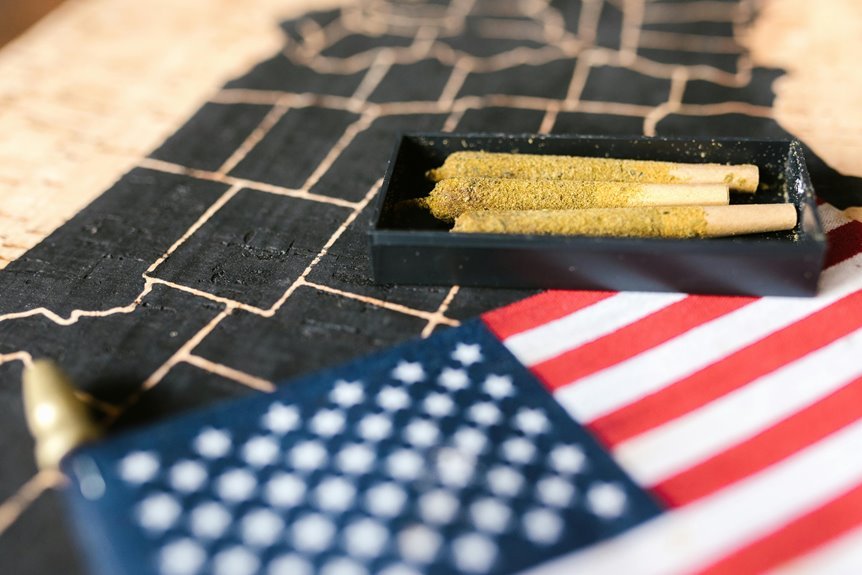The legalization of CBD in the United States marks a significant regulatory shift in cannabis policy. Initially, the 2014 Farm Bill laid some groundwork, but it was the 2018 Farm Bill that fundamentally changed the landscape by removing hemp from the list of controlled substances. However, the subsequent emergence of diverse state-level regulations complicates the current legal status. Understanding these nuances is crucial for grasping the full implications of CBD's newfound legality.
The 2014 Farm Bill: A Step Towards Legalization
Although the legalization of cannabidiol (CBD) has evolved significantly over the years, the 2014 Farm Bill marked a crucial turning point in this process.
This legislation established federal guidelines that permitted hemp cultivation for research purposes, thereby facilitating the exploration of CBD's potential benefits.
The bill represented a significant shift towards acknowledging hemp's value, paving the way for broader acceptance and regulatory frameworks in subsequent years.
The 2018 Farm Bill: Major Changes in CBD Legality
With the passage of the 2018 Farm Bill, significant changes occurred in the legal landscape surrounding cannabidiol (CBD) in the United States.
This legislation legalized hemp cultivation, allowing for increased production and distribution of CBD products.
The recognition of CBD benefits fueled market growth, providing consumers access to potential health advantages.
Consequently, the bill marked a pivotal moment in the regulation of CBD nationwide.
State-Level Regulations and Variability
The legalization of hemp cultivation under the 2018 Farm Bill sparked a diverse array of state-level regulations concerning CBD.
Each state has implemented unique state laws, resulting in significant variability in market access and product standards.
This patchwork of regulations creates regulatory challenges for businesses and consumers alike, complicating compliance and limiting the potential for a cohesive national market in CBD products.
Current Legal Status and Future Considerations
As states navigate the complexities of CBD regulation, the current legal status remains a multifaceted issue influenced by federal guidelines and local legislative actions.
Regulatory challenges persist, complicating the landscape for both producers and consumers. Ensuring consumer safety is paramount, yet inconsistent regulations hinder clear understanding and compliance.
Future considerations must address these discrepancies to foster a more coherent and secure market environment.
Conclusion
In conclusion, the legalization of CBD in the U.S. marked a pivotal transformation in agricultural and regulatory frameworks, primarily driven by the 2018 Farm Bill. While some may argue that the lack of uniformity in state regulations complicates the industry, this diversity also allows for innovative practices and tailored approaches to local markets. As the legal landscape continues to evolve, ongoing dialogue among lawmakers, businesses, and consumers will be essential for establishing a coherent regulatory environment that balances safety and accessibility.





 How to Get License to Sell Cbd Products
How to Get License to Sell Cbd Products